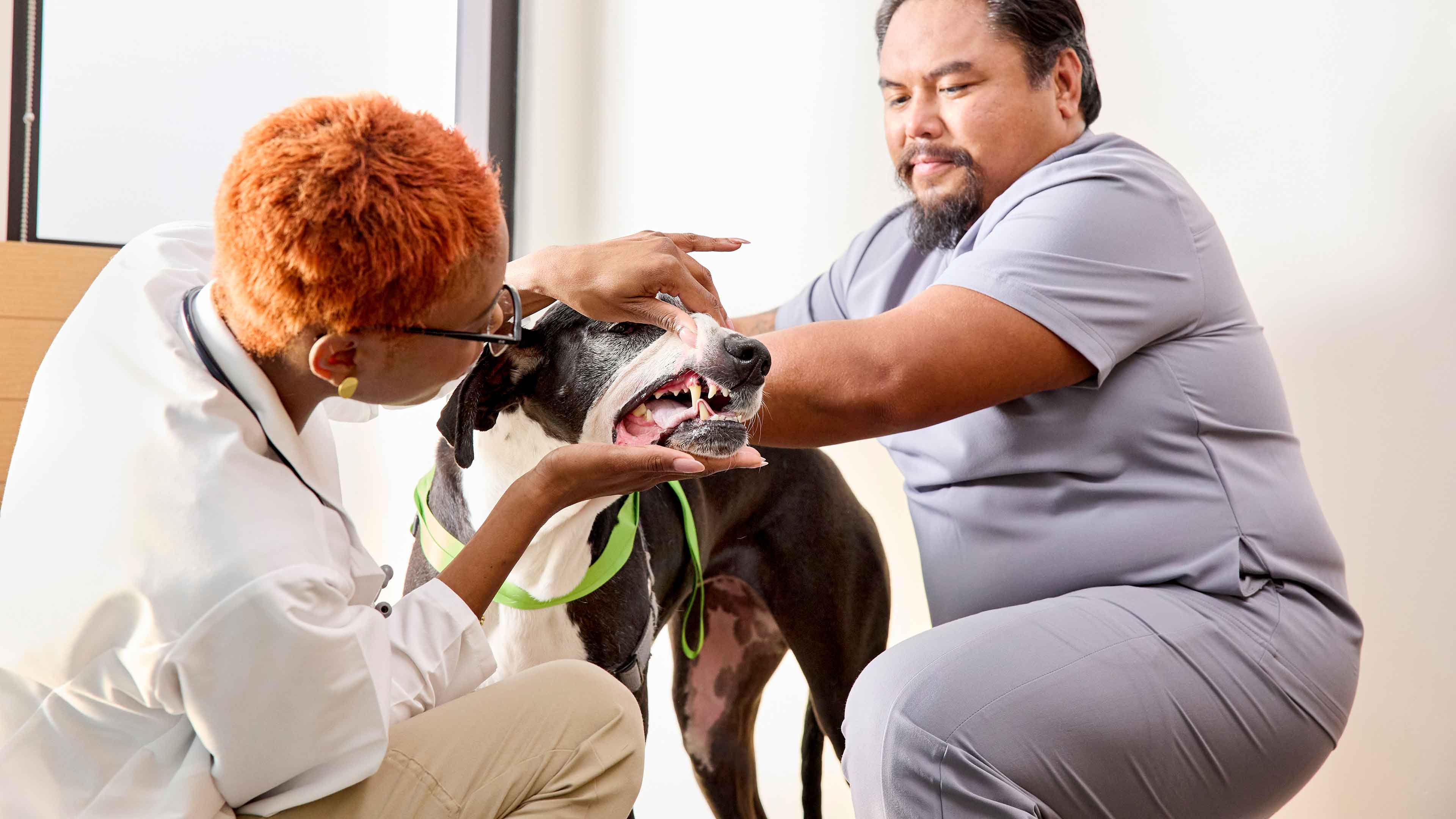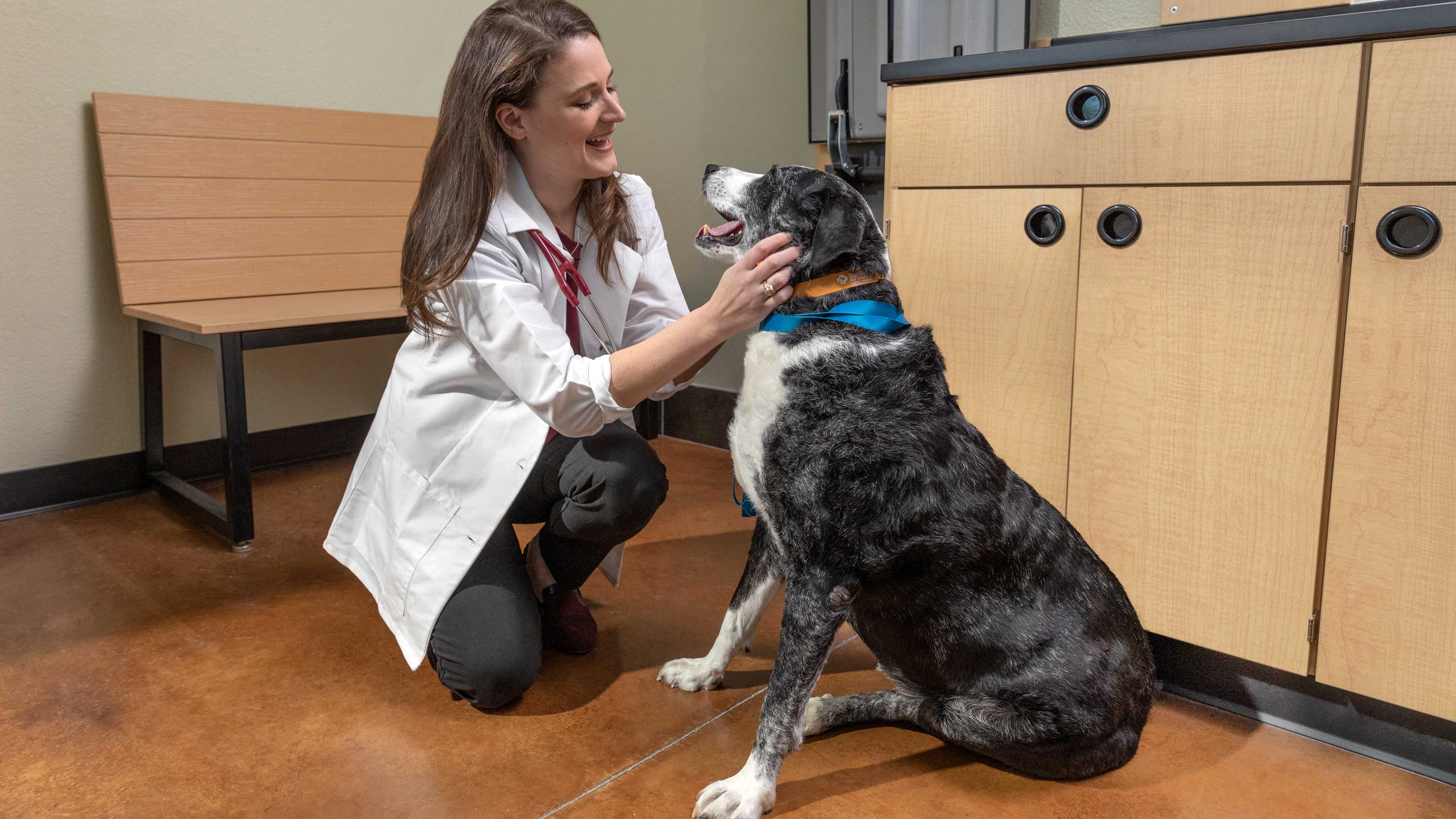how to support your dog or cat with arthritis
Not just humans get arthritis — pets do too. In fact, it’s a common cause of chronic pain in older dogs and cats. Simple activities like climbing the stairs or jumping off the couch can be difficult.
But there’s good news. With preventive care and a few lifestyle adjustments, we can help our furry friends stay as comfortable as possible as they age.
What is arthritis?
Arthritis is inflammation and deterioration of the joints. In pets, it often shows up as osteoarthritis (OA), which causes degeneration of the cartilage and potentially a whole lot of pain and limited mobility. Arthritis most often affects joints in the hips, knees, elbows, and spine.
Large dog breeds are more prone to OA, but any dog or cat can experience it, especially as they age or gain weight.
Signs of arthritis
Because pets can’t tell us when they hurt, it’s important to look for changes in their behavior.
Keep an eye out for these warning signs:
- Stiffness or limping
- Reluctance to jump, climb stairs, or play as they once did
- Difficulty rising or lying down
- Irritability or withdrawal, especially when touched near sore joints
- Changes in grooming habits
- Muscle loss in the affected limbs
If you notice any of these behaviors, please schedule an appointment with your veterinarian. They can confirm arthritis through a physical exam and other diagnostics like X-rays.
Ways to minimize the effects of arthritis
Genetics and aging are two major factors in your pet developing arthritis, and sometimes there is nothing you can do about it.
However, in some instances, you can help minimize its severity or delay its onset with these steps.
Healthy weight
Excess weight puts extra strain on joints, so helping your pet stay a healthy weight can help prevent or delay wear and tear on their joints. Talk to your veterinarian about what your pet’s ideal weight looks like and what to feed them to maintain a healthy weight.
Exercise
Exercise can help keep joints flexible and muscles strong, which supports joint health. Talk to your veterinarian about what exercise is appropriate for your dog or cat; common low-impact exercises like walking, swimming, and playing may help.
Nutrition
A balanced diet rich in omega-3 fatty acids, antioxidants, and nutrients can help support joint health. Consult your veterinarian before starting any supplements or therapeutic diets for your pet.
Treatment options for your pet with arthritis
If your dog or cat has been diagnosed with arthritis, don’t fret — there are ways to manage the condition.
Medication
Your vet may prescribe nonsteroidal anti-inflammatory drugs (NSAIDs) to help reduce pain and inflammation, or they may recommend once-a-month monoclonal antibody injection. Important: Please do not give your pet human pain medications — they’re toxic to animals.
Joint supplements and diets
Joint health supplements, often containing glucosamine, chondroitin, MSM, and omega-3s, can support cartilage. Some veterinary diets with antioxidants and essential fatty acids are specially formulated for joint care and may provide additional support. Consult your veterinarian before starting any supplements or therapeutic diets for your pet.
Physical therapy and alternative treatments
Physical therapy can be beneficial for pets with arthritis, including therapeutic exercises, hydrotherapy, acupuncture, massage therapy, and laser therapy, which helps reduce inflammation.
Weight management
If your pet is overweight, gradual weight loss can ease pressure on sore joints and improve comfort. Even a small reduction can make a big difference.
Home adjustments
Modify your home to make life easier for your pet:
- Ramps or pet stairs for getting onto furniture or into cars
- Food and water bowls at a comfortable height
- Comfortable orthopedic pet beds
- Easy access to litter boxes or outdoor areas
Helping your pet live well with arthritis
Arthritis doesn’t have to mean the end of your pet’s playful days. With the right care plan, most dogs and cats can continue to live happy, active, and comfortable lives. The key is early detection, consistent management, and loving support.
Important Notice: The information provided on this page is for informational purposes only and is not a substitute for professional veterinary advice. Always consult a veterinarian with any questions regarding your pet's health or medical condition. Never disregard or delay seeking professional veterinary advice based on information from this page.
 Mites and mange
Mites and mange Podcast - Not Just Fluff
Podcast - Not Just Fluff












